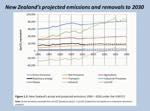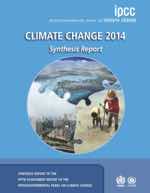 Simon Johnson (aka MrFebruary) looks at how climate change minister Tim Groser and the National-led government intend to use creative carbon accounting to ensure that New Zealand meets its 2020 climate change target (a five percent reduction) in spite of emissions of greenhouse gases (GHG) projected to increase to 2020 and beyond.
Simon Johnson (aka MrFebruary) looks at how climate change minister Tim Groser and the National-led government intend to use creative carbon accounting to ensure that New Zealand meets its 2020 climate change target (a five percent reduction) in spite of emissions of greenhouse gases (GHG) projected to increase to 2020 and beyond.
On 10 April 2015, when he was releasing the latest inventory of greenhouse gases, the Minister for Climate Change Issues Tim Groser made this very confident statement about the NZ 2020 climate change target; “We’re well on track to meet our 2020 target”
That target is to reduce greenhouse gas emissions to five per cent below 1990 levels by 2020.
When this was announced in 2013 the target was criticised as useless, pathetic and inadequate.
The five percent reduction stands in stark contrast to the Ministry for the Environments projections of increasing emissions out to 2020. The Ministry estimates that the increase in gross (total) emissions in 2020 will be 29% above the 1990 baseline (from 60 to 77 million tonnes) and the increase in net emissions (gross less any increase in the stock of carbon stored in forests) to 2020 will be 130% (from 33 to 75 million tonnes). So why is Tim Groser so confident that the target will be achieved?
Simon Terry of the Sustainability Council has commented on the ‘kicking the can down the road’ features of the Government’s climate change policies: the mismatch between the emissions target and the predicted emissions, the absence of a credible plan or carbon budget approach and the deferring of liabilities into the future.
Taking Simon Terry’s work as a starting point, I am going to look at how the Government intends to apply the accounting rules for carbon credits to achieve the 2020 target in spite of the likely predicted increase in gross and net greenhouse gas emissions.
So how is NZ going to reduce emissions by five percent by 2020?
Continue reading “NZ’s emissions target scam – Groser & Co’s creative accounting exposed”



 Today’s news that the US and China have agreed a long term policy to reduce carbon emissions is
Today’s news that the US and China have agreed a long term policy to reduce carbon emissions is  The IPCC’s Fifth Report process reached its climax in Copenhagen yesterday with the release of the final “synthesis” report (download
The IPCC’s Fifth Report process reached its climax in Copenhagen yesterday with the release of the final “synthesis” report (download
You must be logged in to post a comment.